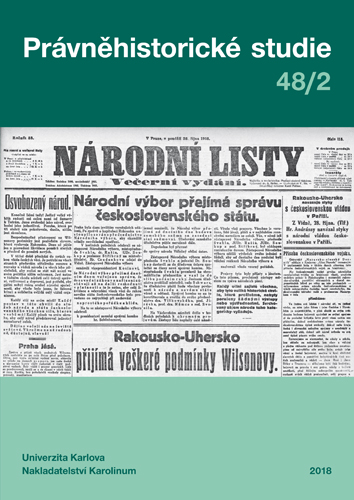Zahlazení odsouzení do roku 1928 s důrazem na období let 1852–1928
Spent Convictions up to the Year 1928, with Emphasis on Period of the Years 1852–1928
Author(s): Zdeněk Jiří SkupinSubject(s): Law, Constitution, Jurisprudence, History of Law
Published by: Univerzita Karlova v Praze, Nakladatelství Karolinum
Keywords: spent conviction; Austro-Hungarian Empire; First Czechoslovak Republic; historical comparison
Summary/Abstract: The article deals with the development of prison sentences from 1708 to the year 1928. The term “spent conviction” is related to the deletion of the criminal record or records (it means that the record can be ignored) thus the undermined legal status of the person, who had been convicted, is rehabilitated and restored, which means that no one can blame or remind him or her the crime. It may seem to that the spent conviction is the institution of the modern society but true lies elsewhere. In fact the process of spending conviction and its repercussion appears since 1768, when the substantive law of spent conviction was included in the Constitutio Criminalis Theresiana which was the penal code of empress Marie Theresie. But main progress in the field of spent conviction made Marie Theresie’s son Joseph II, whose penal code included extensive provisions on subject matter. Emphasis is placed on penal code about crimes, torts and offences, which came into force in 1852 and had been effective almost for 100 years till 1950 when a new penal code took effect. However, since 1918 the act of redress of conviction become effective, and replaced provisions about spending conviction, which was contained in penal code about crimes, torts and offences. At last, but not least, the act of redress of conviction contained both substantive and procedural law of spent conviction and thus it was the first comprehensive and united act on the subject matter.
Journal: Právněhistorické studie
- Issue Year: 48/2018
- Issue No: 2
- Page Range: 159-172
- Page Count: 14
- Language: Czech

